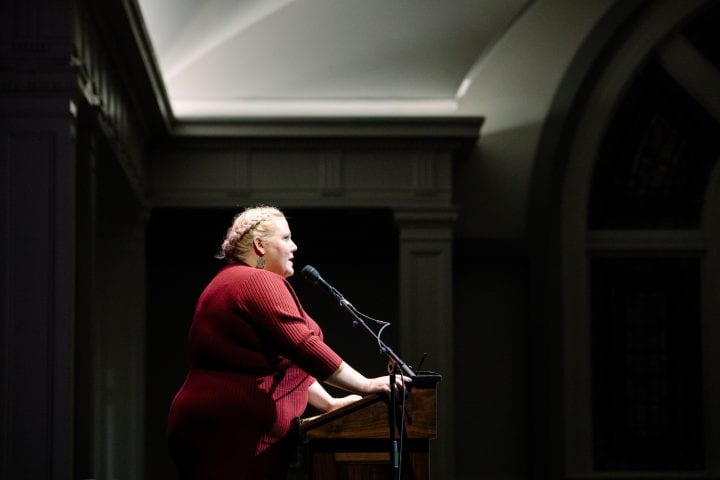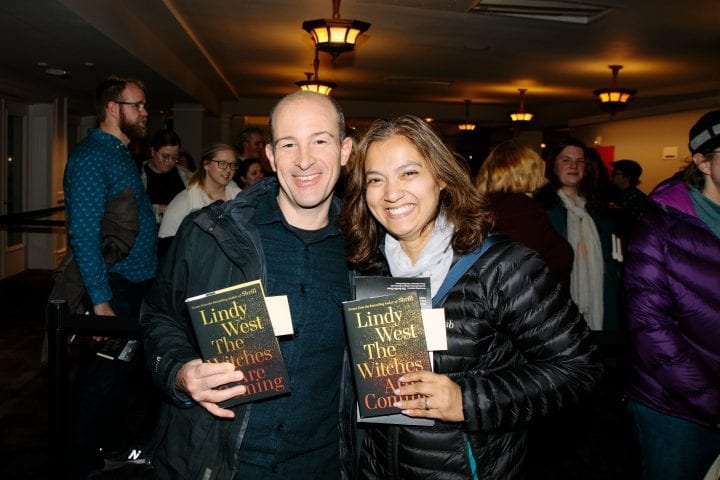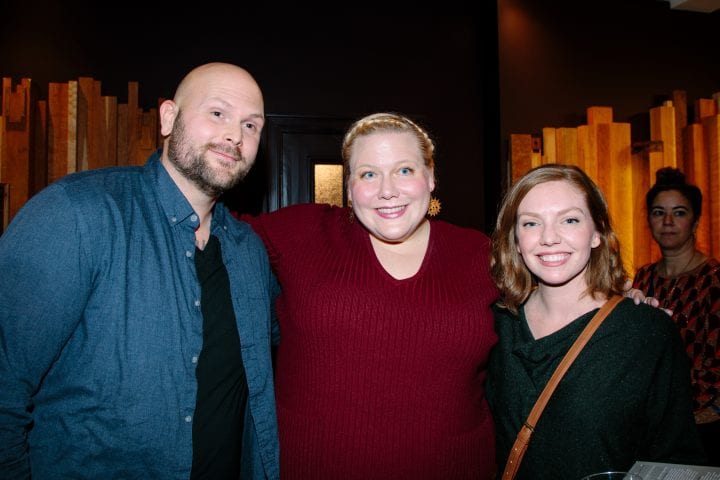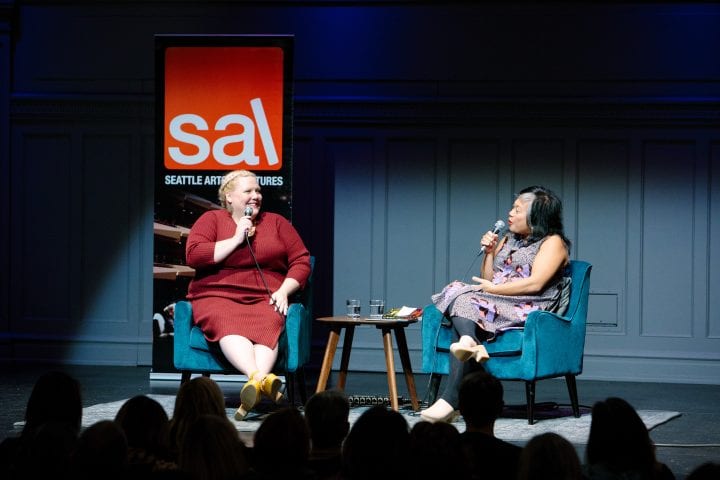
A WITS Student Reflects on Lindy West
December 17, 2019
By Akshaya Ajith, SAL Volunteer
Even before the stage lights dimmed, the room was filled to the brim with pure excitement. There was not a shuffle or a cough, just a silent blanket of anticipation for the stage door to open and hearts to be filled. It was a kind of fierce joy that illuminated the significance of that night, the homecoming of Seattleite, Lindy West.
Carrying the room with laugh-out-loud humor and honesty, West captivated her audience with her authenticity and her ability to boldly confront profound problems. In her recent novel, The Witches Are Coming, West takes over the derogatory connotation of a “witch” and makes it her own. She writes about the churning, clashing, and controversial America around her as a woman living in the middle of it.

That evening, she pointed out the “particularly American kind of whiplash” between the cult of fascination surrounding the “charming” and “brilliant” serial killer Ted Bundy and the perceived unlikability of feminist women, determining that likability is a constraint placed on women to weigh them down. “Chasing likability has gotten [women] nowhere,” she says. Likability is an elusive and invisible standard used to stop women from pursuing their dreams, their lives, and their goals. It’s time to stop trying to satisfy likability, she told the audience, because “witchcraft cannot be likable.” Witches must speak truths and confront complicated problems.
West also addressed the dramatic changes occurring in Seattle. She reflected on seeing her Seattle transform, taking us back to the 1960s and stories of her parents in Seattle. “Every moment of my life, there were always people lamenting that the city was gone, the real city,” she said. Now, she feels herself start to agree.

Everyone’s rent seems to have doubled. The creative force in Seattle that truly embodies the city, like artists and musicians, are forced to leave, taking with them what West feels is Seattle’s character. “That profoundly changes who we are,” she told the audience, but “the answer is not to leave, it is to stay.” We can only shape the city’s culture from the inside and confront the massive problems of the income difference between white families and families of color in Seattle, the high cost of living, and the loss of innovation and creativity in the city.
The importance of West’s writing is in part the way it calls out America’s addiction to plausible deniability. That evening, she drew on the example of internet cats, and the controversy around Grumpy Cat’s real name, “Tarder Sauce.” After the media frenzy died down with an interview that called the offense over the name a misunderstanding, the internet bought into it hook, line, and sinker. “We are choosing the lie,” West writes. It is easier to turn our heads away and leave it alone than it is to think about it.

According to West, this leads to danger and ignorance. “You can’t just reject it, because there’s work to be done,” she answered, reflecting on the uncomfortable notion that we are on indigenous land. West and her essays both help readers make the realization that one must acknowledge painful truths, to take action and right wrongs. As a writer, she believes she has a responsibility to introduce her readers to uncomfortable realities in today’s world. At one point, she asked the crowd, “How can you write about anything else?”

Akshaya Ajith is currently a freshman at the Overlake School. She has been a WITS student for three years and continues to work with SAL as a volunteer. Akshaya has written two published poems, “Imperfect” and “I,” with WITS as well as a short story. She continues to write in her free time.